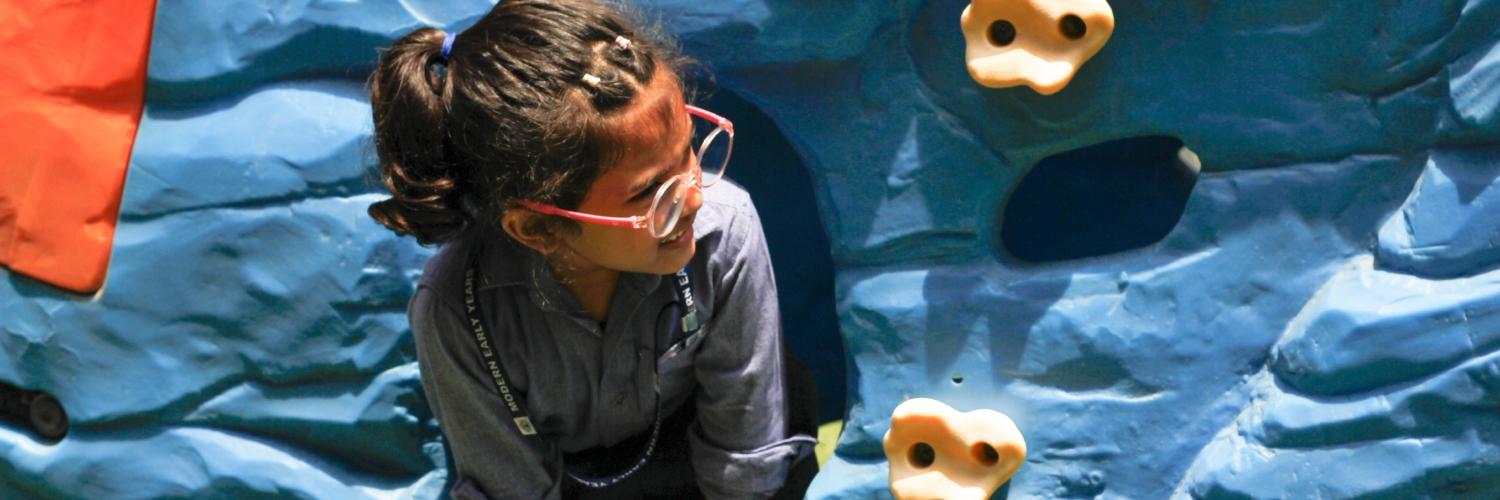How Playdates at School Build Friendships for Life: A Modern Early Years, Deepali Perspective

Friendship in childhood is one of those magical things that stays in memory forever. A child may forget a rhyme, a toy, or even a lesson from class, but they rarely forget their first friend. At Modern Early Years, Deepali, we have seen this magic unfold every single day. While academics are important, it is often in those unscripted playdates — filled with laughter, shared toys, and even tiny arguments — that children form connections that shape their lives.
But why are playdates at school so powerful? Why do they leave such a long-lasting mark on young minds? Let’s dive deeper and understand how play truly becomes the first bridge of friendship.
1. Play Is the First Language of Friendship
Before words come freely, children speak the language of play. You’ll see two toddlers who don’t know each other’s names sit together with blocks and suddenly they are friends. No formal introduction, no hesitation, just joy in shared activity.
At the Best Preschools in Pitampura Delhi, play isn’t treated as “free time,” it’s seen as the most natural way for kids to bond. Whether it’s pretending to cook in a play kitchen, becoming superheroes, or simply drawing rainbows side by side, children learn valuable lessons:
- Taking turns (yes, even if the crayon fight happens first!)
- Sharing toys and space
- Expressing emotions without fear
- Understanding another’s feelings
These seeds, planted during innocent playdates, grow into the roots of lifelong friendships.
2. Safe Spaces Encourage Authentic Connections
Friendship cannot bloom in fear. A child needs to feel safe — both emotionally and physically — before they can truly open up. At our school, we take pride in creating a nurturing environment where every child is valued, respected, and loved.
During playdates in class, picnics, or theme days, children know they can be themselves. This safety nets them with confidence to trust, to laugh openly, and to bond without hesitation. A child who feels secure will not just play, they will connect — and those connections often last far beyond the classroom.
3. From Parallel Play to True Partnership
In the beginning, young children engage in “parallel play.” That means they play side by side, but not necessarily with each other. Over time, as they are given regular playdate opportunities, this changes into associative and then cooperative play.
That’s when the magic happens:
- They start solving small problems together (“You build the roof, I’ll build the walls.”)
- They learn negotiation and compromise (“Okay, today you be the doctor, tomorrow me.”)
- They learn to support (“Don’t cry, you can play with me.”)
These lessons are not from a textbook but from lived experiences — and they make children more empathetic, resilient, and socially aware.
Schools like Modern Early play school in Delhi have mastered the art of designing such spaces where this natural growth unfolds beautifully.
4. Parents as Partners in Social Growth
At ModernEarly (visit here), we firmly believe that friendships don’t stop at the school gate. Parents play a key role in supporting these bonds. When parents invite classmates over, plan birthday celebrations, or meet in the park, it reinforces the sense of belonging.
When a child sees both their teacher and parents cheering for their friendships, the bond becomes even stronger. It tells them: “Friendship matters.” And this confidence carries forward into later years of schooling.
5. A Glimpse Into the Future
Many parents wonder — will these little friendships really matter later? The answer is yes. Childhood friendships are often a child’s first circle of trust. They become the cushion for anxiety during new situations, a source of courage in transitions, and a partner in every celebration.
We have seen children:
- Walk hand in hand on their first nervous day.
- Console one another with tiny hugs after a tearful goodbye.
- Celebrate each other’s achievements with pure joy.
Often these friendships don’t fade after preschool. They extend into primary school, teenage years, and sometimes even adulthood. The child who shared a toy truck at age 3 could very well be the best man at a wedding years later.

6. Designed for Connection
At Modern Early Years, Deepali, every corner is built with intention. The classrooms are interactive, the play zones are open-ended, and even art corners encourage teamwork. Some examples:
- Group activities that need children to work together.
- Themed events where participation is in pairs or teams.
- Outdoor exploration zones where children discover nature side by side.
- Pretend play corners that spark imagination and group storytelling.
Teachers here don’t just “supervise” play; they gently guide interactions, helping shy children open up and ensuring conflicts become learning opportunities.
That is why when parents search for the Best Playschool Pitampura New Delhi, they often find themselves drawn to schools that focus equally on academics and emotional growth.
7. Building Communication Skills Naturally
Playdates aren’t just fun; they’re mini language labs. Think about it — during play, children are constantly negotiating, planning, or even debating over who gets which role in pretend games.
Through these, they:
- Expand vocabulary (“No, this is not just a car, it’s a rocket ship!”)
- Learn listening and patience.
- Practice expressing feelings clearly.
- Understand tone, body language, and facial cues.
At ModernEarly (explore here), every playdate is seen as a communication-building opportunity. Over time, these skills flow into academic readiness and healthy friendships alike.

8. Why Early Education Shapes Friendships
It’s important to remember that the foundation for future learning — and friendships — is laid in early education. When children step into the right environment, their world expands. They learn independence, social balance, and creative thinking.
That’s why families exploring Education in Pitampura New Delhi often seek schools where play and academics go hand-in-hand. A strong foundation at this stage means smoother transitions, fewer insecurities, and a stronger ability to form relationships.
9. The Role of Structured Playdates
While unstructured play is magical, structured playdates also have their role. When schools organize special theme days, picnics, art fairs, or music sessions, they bring children together in new contexts.
This teaches:
- Teamwork outside of routine class.
- Exposure to new environments.
- Courage to try new activities with peers.
For parents, it’s heartwarming to see how their child blossoms in such group activities, slowly developing into confident, compassionate individuals.
10. Finding the Right School for Your Child
So what should parents really look for when searching for schools? Beyond shiny brochures, the real answer lies in atmosphere and care. Is the school designed for connection? Are the teachers patient and warm? Are children encouraged to share, laugh, and solve problems together?
For families in Delhi, schools like the Best Nursery in Pitampura Delhi or the Best Playschools Near Pitampura Delhi are setting standards in how early years education should truly be.
Conclusion: Small Moments, Big Impact
Friendship may seem like a simple thing, but in a child’s world, it is everything. A playdate at school is not “just play.” It’s where children learn empathy, negotiation, patience, and confidence.
At ModernEarly, we cherish these small but powerful moments because we know they are shaping the future. Who knows? The child who shared crayons today may become your child’s lifelong friend tomorrow.
Because at the heart of every strong education lies not just academics, but relationships that teach children how to live, love, and belong.
Contact Details:
Modern Early Years, Deepali, Pitampura — New Delhi
(Early Years Facility of The Modern School ECNCR-DELHI)
deepali@modernschoolec.com
01127012531, 32, 33
Website: https://modernschoolec.com/deepali-campus/







